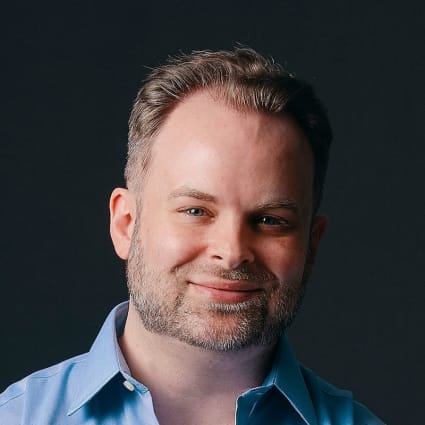Building and Managing Global Teams: The Remote Work Paradigm
authors are vetted experts in their fields and write on topics in which they are extremely knowledgeable. All of our content is peer reviewed and validated by world-class professionals.

As mentioned in Building and Managing Global Teams: Learn Your Rhythm, we are welcoming a new host to The Talent Economy Podcast: Toptal’s Chief Economist, Erik Stettler. Many of you may remember Erik from his interview with Paul earlier this year (Putting a Dent in the Universe: Introducing Toptal Chief Economist Erik Stettler). Paul and Erik, along with other key members of the Toptal team, will host different episodes of the podcast, each offering their unique perspectives on the Future of Work and introducing us to key leaders from within the industry and their respective networks.
Toptal’s Head of Projects, Stephanie Currier, joins Erik for his first episode. Stephanie holds three degrees from Northwestern University and Clarkson University. She has been in the IT management and consulting industry for about 10 years, where she started as an IT analyst and iteration manager at ThoughtWorks in Chicago, working with distributed teams for clients across multiple industries including fintech, eCommerce, and healthcare. Stephanie subsequently moved into program and product management roles for two startups.
She has been working with Toptal for the last three years. As the head of projects, she manages a team of delivery managers that curate and manage entire teams of Toptal talent to deliver successful client solutions.
In Part 2 of their conversation, Erik and Stephanie discuss current events and their impact on remote work. With so many being forced into working remotely, it’s likely that remote work could be defined under these circumstances. Erik and Stephanie speak to the importance of viewing remote work as its own paradigm, understanding your team, how they work, and ensuring there's an open line of communication. They close the conversation on an optimistic note, acknowledging the impact of the current crisis and shining a light on the opportunities available to both organizations and talent:
“Some of our best innovators came from downtimes. This is the time to be productive and to think about what you’re best at and what you can succeed in.”
– Stephanie Currier
Questions Erik Asks:
- What would be your advice on how to begin understanding remote work as its own paradigm?
- As things do begin to go back to normal, how can companies best continue with some remote work in their DNA?
- Are there any industries, or types of companies, that you feel would benefit from incorporating an agile framework or remote talent?
- What would you say to someone who is looking to get started in remote work, and how can they cultivate a successful career?
In This Episode, You Will Learn:
- Stephanie’s advice to leaders on how to support and manage their newly remote teams during this time.
- How Stephanie encourages clients to adopt a sense of flexibility and creativity that would allow them to catch the opportunities that lie on the other side of this crisis.
- The benefits of structuring projects under an agile framework.
- Stephanie’s thoughts on what the future of work will look like on the other side of the current crisis.
